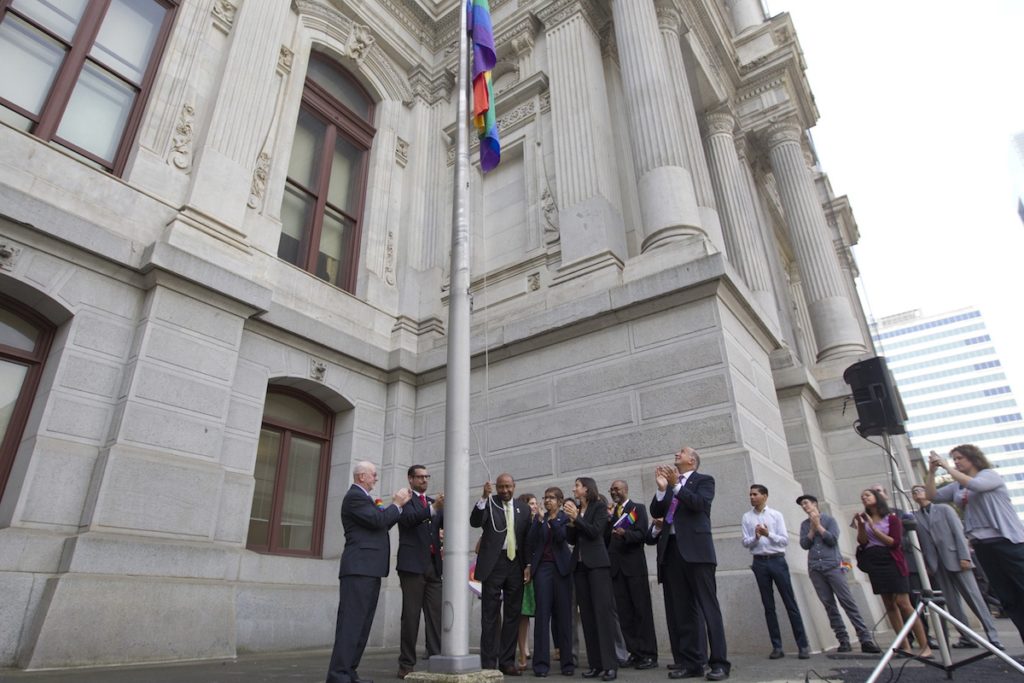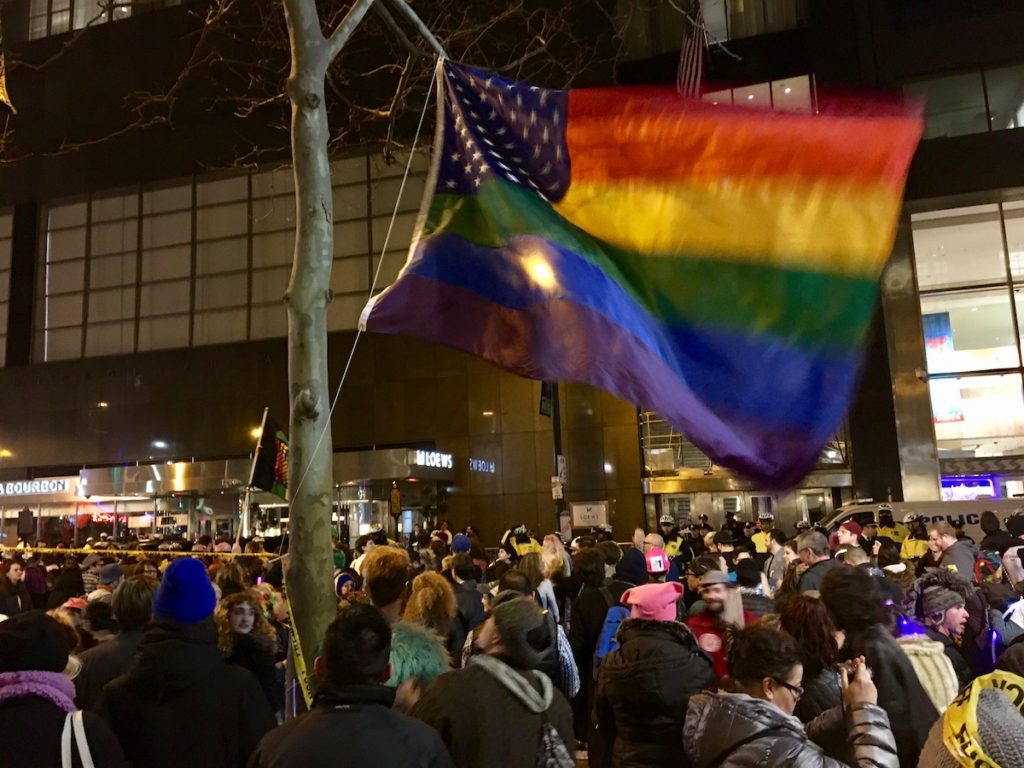Meet Amber Hikes, the Office of LGBT Affairs’ new director
 February 21, 2017
Category: Featured, Long, People, Q&A
February 21, 2017
Category: Featured, Long, People, Q&A
“Moving On” is a series of Q&As with social impact leaders who are leaving their organizations for new opportunities. Here, they share what they learned and where they’re headed.
Amber Hikes is back in town.
The renowned LGBTQ community organizer and social worker is returning to Philadelphia to become the director of the Mayor’s Office of LGBT Affairs following a year-and-a-half-long stint in Southern California, where she served low-incoming, first-generation college-going youth as director of the Upward Bound program at California State University – Long Beach. When living in Philly previous to her California move, Hikes was the director of Penn’s iteration of the program.
Hikes is replacing Nellie Fitzpatrick, who held the director position for two years and in recent months faced criticism for her perceived lack of response to allegations of racism in the Gayborhood.
In an interview with Generocity Editor Julie Zeglen, Hikes discusses the need for transparency and open forums in the office; who’s doing inspiring work in Philly’s LGBTQ community; and its strengths and “opportunities for growth.” Their conversation has been condensed and edited.

The City of Philadelphia’s 2013 Rainbow Flag Raising Ceremony. (Photo by Mitchell Leff via Flickr user City of Philadelphia)
G: What can you draw from your time in Long Beach and apply to your new role in the Office of LGBT Affairs?
AH: Part of what I’d like to do in this office is have a lot more transparency. We’re going to bring more people to the table. I want this community to feel again that this office is there for them, and part of that is opening up these conversations and having more forums where folks feel themselves represented and are very literally contributing to the process.
The Long Beach LGBT center here has opportunities for members in that way — bring them into the center, hear their concerns. And while that may be challenging to do in the city of Philadelphia just because of the sheer size and population, it’s something that I’m going to work very diligently to do, because I think listening to our community and actually hearing from our mouths what they say the issues are is a really important part of serving them.
G: What do you perceive the strengths and the weaknesses of the LGBTQ community to be in Philadelphia, and how can the office best serve them?
AH: We are so, so, so fortunate to live in such a wonderful city that has been one of the leaders, nationally, in serving the LGBT community. That’s a credit to Mayor Kenney’s administration and the administration before him as well. We’re one of the most LGBT-friendly governments in the country. I think that’s certainly one of the strengths.
The heart in the community, outside of government, [is] certainly the actual community members: People are so passionate about justice and equality for the community. They’re willing to help each other. They’re willing to sacrifice their time and their energy to serve other people who are similar to them and people who have very little in common with them, and I think that’s a tremendous strength.
In terms of our weaknesses, I go back to size: While size is certainly a strength because you have more hands to do the work, it is often a weakness, because I think it’s easier for people to feel left out of the process. Weakness isn’t the right word — I’ll say a ‘challenge,’ or as social workers say, an ‘opportunity for growth.’

“Queer Rage(r),” a dance party and protest outside of the Loews Hotel, where Donald Trump stayed during the Republican retreat in Philadelphia on Jan. 26, 2017. (Photo by Julie Zeglen)
G: You’re coming into an office that’s been hit with a fair amount of turmoil in the past few months, and so it seems that the commitment to transparency and accessibility and bringing new voices to the table is a way to address that and hopefully turn those challenges into strengths through community-based work.
AH: Absolutely, absolutely.
G: Who else in Philadelphia is doing great work? Can you give a shoutout to any LGBTQ community leaders who have been working toward this accessibility?
AH: Oh, wow. Oh, my gosh. Wow. [Laughs] There are just so, so, so, so, so many people. Obviously, there’s the Attic Youth Center — that’s where I got my start as [a social worker]; William Way LGBT Community Center, which means a very great deal to me; GALAEI, which is one of the leading organizations and just recently pulled itself out of the Gayborhood, went to North Philadelphia where their population is, which is genius and really shows a deep commitment to the work.
In addition to that, you have the newer groups, so, the Black and Brown Workers Collective, which obviously is highlighting a lot of the issues facing specifically Black and Brown LGBT folks, and doing it in a way that’s really challenging the notions and assumptions people have had in the past about how we affect change and bring issues to the forefront.
So, I think the really important part of this is to bring these more established organizations together with our newer organizations and say, ‘Where is the overlap?’ Let’s try to have these conversations here, face-to-face, community member to community member, and see if we can’t hear each other and understand each other, and get to some common ground.
Gran Varones is also doing awesome work — they work predominantly with Latino men, and highlight those stories that have been ignored for some time. There are just so many groups like that, that people haven’t really heard of. But that’s part of what I want to do — bring people together and bring those voices to the table, because for a very long time, we were only hearing one side of the story. We’re such a colorful community of people, and we need those voices elevated.
Project
Moving OnTrending News









